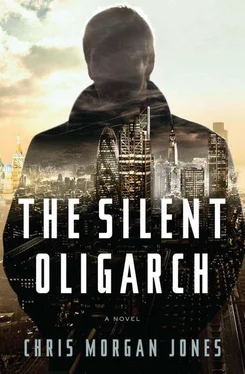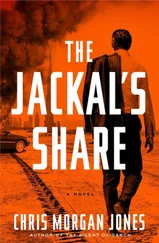Knight resembled his adopted countrymen in one other respect: he was authentically scared of power. Giving him instructions was complicated and expensive. E-mail correspondence to his Russian account about anything of substance was forbidden. He came to London regularly; Webster knew his schedule, but if he had an urgent task he had to send him an e-mail inquiring when he would next be in England. Knight would then leave Tyumen and fly to Istanbul, where he would retrieve from a Turkish e-mail account the real brief that Webster had also sent him. Until Knight flew out of Russia to report, any further correspondence about the case was impossible unless Webster was prepared to bring him to London for the purpose. Clients who breached these rules were struck off. Webster and others put up with this degree of caution because Knight was good and because he had no competitors. If Russian business was famously opaque, energy was its dark center, and Knight was one of the few peering in from the very rim.
This time they met in the Chancery Court Hotel in Holborn. Webster had chosen it because it was anonymous and quiet and because no Russians ever stayed there. Knight wouldn’t go to the Ikertu offices. It was mid-morning and the lobby was more or less empty. Webster was early; he took a chair and started playing idly with his BlackBerry. This was an important moment. Knight had better know something useful.
After five minutes he arrived, looking agitated and hot in his coat. As Webster greeted him and shook his hand he remembered his sour, soft smell of tobacco and must.
“Good to see you, Alan,” said Webster. “You look well.”
“Hi, hi,” said Knight, looking around at the three or four guests checking out or sitting waiting themselves. “Can we go somewhere else? Let’s go somewhere else.”
“Why? We’re fine. There’s no one here.”
“That’s not it. Who knows we’re meeting?”
“One or two people at Ikertu. Alan, what’s wrong?”
“Nothing, nothing. No, nothing. I just need to be sure.”
“Really?” said Webster, the subtlest shade of exasperation in his voice. “All right. Let’s go.”
They left the hotel and Webster hailed a taxi. “Ludgate Circus please.” He turned to Knight. “I know a café about ten minutes from here,” he said. “There’s never anyone there between breakfast and lunch, and if there is it’s big enough for no one to overhear us. If you think we’re being followed let me know.” He sat back and watched the world through the window, wondering what on earth went on in Alan’s mind. Knight shifted in his seat from time to time to look at the cars behind.
In the café, which was indeed empty but for them, they ordered teas and took a table in the farthest corner, away from the window. Knight took his coat off and sat with his back to the wall, monitoring the door.
“Is this better?” said Webster.
“I’m sorry. Yes. Yes, this is better.”
“Did you get my e-mail?”
“I did. I should have deleted it. Actually, what I should have done is just tell you no.”
Webster looked at him, not understanding.
“Have you got your phone on you?” said Knight.
“Yes.”
“We should take the batteries out.” Knight took a phone from an inside pocket and after a struggle with the case removed its battery. Webster did the same and waited for Knight to speak.
“Your Russian friend—the big one. Christ, Ben. He’s the real deal. I’m not kidding.”
“You mean Malin?”
“Are you working for Tourna?” Knight was talking down into the table and so quietly now that Webster could hardly make out what he was saying.
“Do you want to know?”
“Christ. No. I don’t, no.” Knight played with his spoon in both hands, staring hard at it and occasionally glancing up.
“Alan, I know you think I’m a greenhorn who plays with things he doesn’t understand but you can be too sensitive. No one’s here. No one can hear us. If anyone knows we’re together they don’t know what we’re talking about. You clearly know something about all this. Knowing you it’s a lot. And so far I haven’t found a sodding thing. What can you tell me?”
Knight looked up and at Webster, as if trying to gauge his honesty once and for all. After a moment he said, “I don’t want a fee, no contract, nothing. What I tell you here is just what I know now. I’m not doing any work on this. And no notes.”
“All right. That’s disappointing but I understand. Just tell me what you can.”
“OK. OK.” Knight was still fiddling with the spoon. “OK.” He leaned forward again, as if there were people at the next table intent on every word. The café was still empty. “First of all, he’s powerful. In his own right. He’s been in the ministry for longer than anyone else. He runs it. Has done for the last seven or eight years.”
“How did he manage that?”
“New minister, new administration. He saw his chance and took it. He knew more than anyone else. Controlled it all already, really. And he sold the Kremlin an idea of what Russia could be.” Knight looked up at the door and back to Webster, who drank his tea and waited for Knight to go on.
“Mighty once more. Not a second-class world citizen. Do you know how much gas Russia’s got? A fifth of the lot. Some days it produces more oil than Saudi. You look at how output’s gone up since Yeltsin went. That’s not private sector dynamism, that’s Kremlin pressure. And your friend is at the heart of it. He’s in the Kremlin directing policy and in the ministry enforcing it.”
Knight put his spoon down and looked at Webster steadily for the first time.
“So why is he so frightening?” said Webster, returning his gaze.
“Because of what he wants to do.”
“Which is?”
“Every winter Russia switches off the pipelines to Ukraine, right? The press goes nuts, the Ukrainians make a lot of noise, not much happens in the negotiations and then the tap’s on again. That’s not about how much Ukraine pays for its gas. That’s Russia reminding the world that it’s there, and that it can’t be trusted. Anything might happen. Maybe they’ll stop supply to Europe altogether. Last winter the Romanians were freezing, next time it might be the Germans.”
“OK. So what does Malin have in mind?”
“Are you sure you want to know?”
“I am.”
“It’s not going to help your case.”
“Alan, just tell me. I need something. If I can’t use it you have nothing to worry about.”
“OK,” said Knight and looked set to begin when he called the waitress over and ordered more tea. “Do you want anything?”
“No, thank you.”
When the waitress was at the other end of the room he resumed. “OK. This is the thing. He wants to make Russia more powerful still. That’s what Faringdon’s for. Your friend was right.”
“Which friend?”
“The girl. The journalist. In her article.”
“Inessa?”
“Yes.”
“What article? She never wrote about it.” He was thrown, and annoyed to think that Knight knew something about Inessa that he did not. Even now any mention of her gave him a sharp jolt of parallel emotions: an urge to protect her memory; a need, still raw, to know who had killed her; a terrible lingering fear, almost an assumption now, that he would never be sure; and behind it all a thread of shame that he hadn’t done enough to find out. He hadn’t felt it in a long time, but here it was, familiar and fresh.
“She was the only one who did. Years ago.” He looked at Webster for a moment, genuinely puzzled. “You haven’t read it?”
Webster shook his head. He knew all Inessa’s work. In the months after her death he had read every article, taking them apart, organizing them into themes, searching behind every word for some sort of certainty. Had he forgotten something? Or was Alan confused, finally addled by twenty years immersed in oil and conspiracy theories?
Читать дальше












